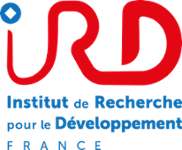MARRES Education
- The MARRES programs
-
The Learning experience: being a MARRES student
- The MARRES students
- The MARRES events
- Life on the Côte d'Azur
- The learning strategy
-
Alumni & Career: the life after MARRES
- The Lérins Biodiversité campaign
-
MARRES To The World: the student initiative
- Our games
- Our podcasts
- Our outreach events
- Naïa: the voice of the Ocean
-
Team & Partners
-
Join us

Tara Pacific: Assessing the Health State of Remote Coral Reefs
Institute for Research on Cancer and Aging, Nice (IRCAN)
Centre national de la recherche scientifique (CNRS)
Supervisors
Paola Furla, Thamilla Zamoum, IRCAN
Context
Coral reefs are severely threatened by global and local environmental changes. Recent estimates indicate that about 20% of reefs have permanently disappeared, 25% are in grave danger and an additional 25% will be threatened by 2050.
Human derived stressors such as climate change and pollution are having devastating consequences on coral reefs, leading to disease and symbiosis breakdown, known as "bleaching", which may contribute to the high mortality rates. Over the past three decades, mass bleaching events of endosymbiotic cnidarians (mainly corals and sea anemones) were widely reported in tropical oceans and has led to both the disappearance of essential ecological niches which supported thousands of diverse marine species, as well as the loss of significant economic benefits. The symbiotic cnidarians’ response to stress in this ever-changing environment thus plays a key role in the survival of the entire coral reef ecosystem.
Previous studies on the molecular basis of environmental perturbations (mainly thermal stress) on corals have identified some key cellular pathways that have been thought to play a role in coral sensitivity, such as i) the antioxidant capacity, ii) the zooxanthellae photosynthetic activity, iii) the heat-shock protein levels and ubiquitination, or even iv) the apoptosis or autophagy. All of these processes are shown to be involved in the early steps of coral response to stress and may often lead to bleaching.
Objectives
The present master project will focuss on the analysis of health state of three different species of corals, Pocillopora meandrina, Porites lobata, Millepora platyphylla, sampled during the on-going Tara Pacific expedition (Tara Expeditions) that is spanning the entire Pacific Ocean passing through more than 40 island stops. The Master student will then be in charge in the analysis of health state of sampled corals coming from the Archipelago of PALAU (Micronesia region of Oceania). He/She will compared between species and sites (control and acidic sites), different biochemical stress markers (protein ubiquitination and carbonylation, and antioxidant capacity) and inorganic carbon absorption (carbonic anhydrase). He/She will also evaluate the symbiotic state of each sample by the assesment of the zooxanthella density. Finally, his results will be correlated with other data coming from Tara Pacific expedition (genetics, physicochemical properties of water, telomer analysis, isotopes analysis) and with the results already obtained. The experienced methodologies will at least be protein extractions, immunodetection by dot blot and Elisa test, spectrofluorimetry, pH titration, cell countings.

Status
Started Fall 2019
Current student involved: Ludovic Toisoul

















